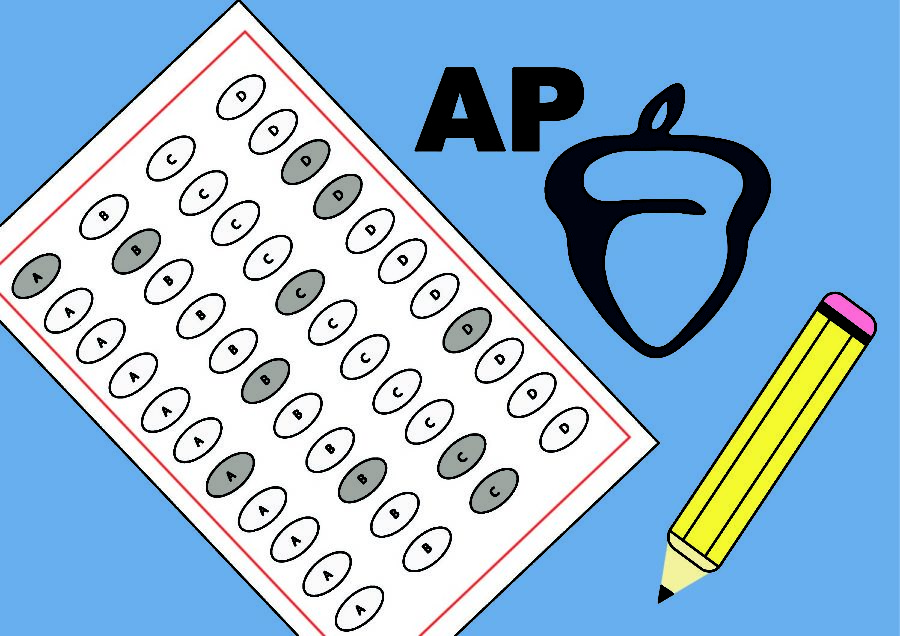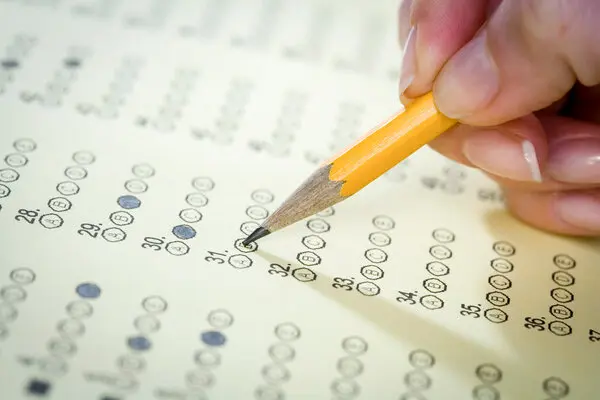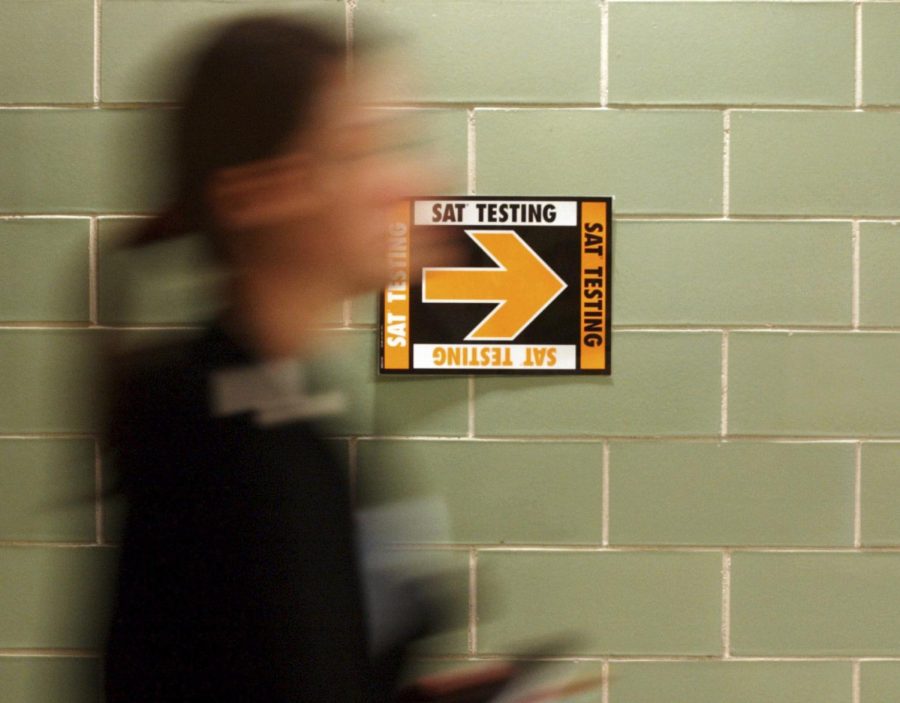Students Question SAT’s Effectiveness
A student leaves a testing room after finishing their SAT.
March 25, 2022
It’s a nearly universal experience: sitting in an overly-lit room surrounded by your peers, filling in bubble after bubble on a Scantron sheet. From America’s SAT and ACT to England’s A Levels to China’s Gaokao, standardized testing has long been a part of the high school experience.
High school juniors in the U.S. took part in this tradition on March 23, when the long-awaited — or dreaded — SAT brought students across the country to desks for several hours of testing.
The SAT and tests like it, despite their near-ubiquitous presence in American high schools, have been met with an increased amount of criticism in recent years.
Many education experts claim that standardized tests, like the College Board’s SAT, are poor indicators of college preparedness. Furthermore, as education nonprofit owner Mo Hyman argued in the 2019 article “College admissions tests are a poor indicator of college readiness,” tests like the College Board’s disproportionately harms students of color, low-income students and first-generation college students.
And students are starting to agree.
These tests, as junior Jessica Loyet argued, put students in “one of the most stressful experiences of their lives” to get results that some argue have harmful results.
“Standardized testing is an institution that makes it easier for colleges to categorize students into black and white boxes,” Loyet said.
A study produced by the College board refutes these ideas, claiming that “SAT scores are strongly predictive of college performance” and that “students with higher SAT scores are more likely to return for their sophomore year.”
Those calling for the test’s removal from the college admissions process, however, place focus on the experiences of underprivileged students, who they believe are unfairly judged based on differing test results.
A 2019 lawsuit called the purpose of these tests into question when civil rights organizers pushed the University of California to lift their SAT or ACT requirements, citing disparities in test results among marginalized students.
“But the UC has failed to carry out its promise: rather than fulfilling its vision as ‘[a]n engine of opportunity for all Californians’ and creating a level playing field in which all students are evaluated based on individual merit,” the lawsuit read, “the UC requires all applicants to subject themselves to SAT and ACT tests that are demonstrably discriminatory against the State’s least privileged students, the very students who would most benefit from higher education.”
In 2021, the UC system announced it would extend its COVID-era policy making the tests optional until at least 2023.
According to CNN, these temporary measures inspired by the pandemic have left education activists with the hope that the school’s admissions process will permanently remove the test requirements.
These shifts away from standardized testing, permanent or not, brought some EHS juniors peace of mind during their SAT season.
“The SAT was much more daunting before the admissions became test-optional. Now that they’re not really ‘required’ for a lot of the schools I’m interested in, I didn’t feel the need to care so much about it,” junior Amanda Woolsey said. “It feels way less serious now.”

































